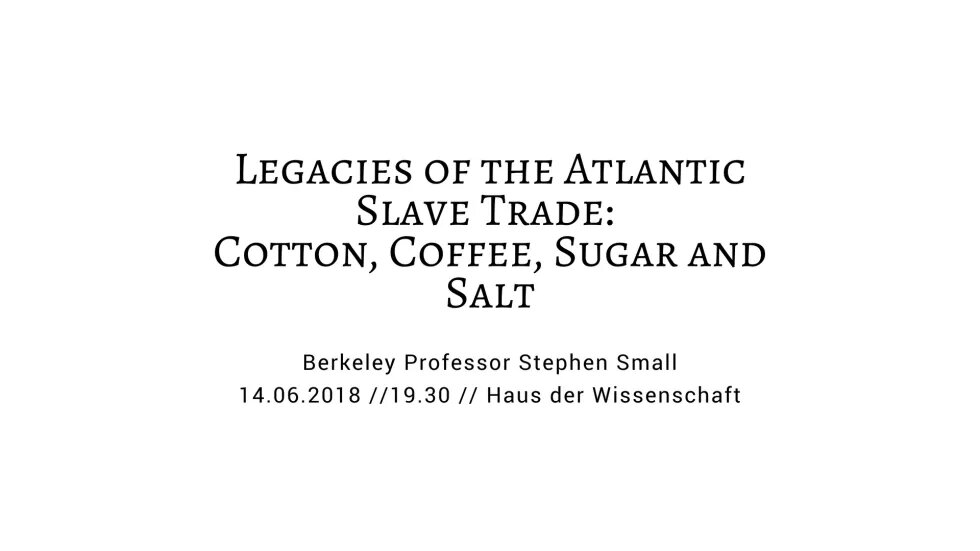14. Juni 2018, 19:30 Uhr, Haus der Wissenschaft, Bremen. Der Berkeley-Professor Stephen Small ist zu Gast in Bremen und spricht über Bremens koloniale Rolle.

Am 14. Juni ist der Berkeley-Professor Stephen Small zu Gast in Bremen. Small, der im Januar „20 Questions and Answers on Black Europe“ herausbrachte, spricht über die „Legacies of the Atlantic Slave Trade: Cotton, Coffee, Sugar and Salt“. Bremen ist bis heute, basierend auf seiner kolonialen Rolle, Sitz der Baumwollbörse, die die Interessen ihrer Mitglieder aus ganz Deutschland, dem europäischen und dem überseeischen Ausland vertritt.
Vortrag und Diskussion mit Stephen Small finden auf Englisch statt, Beginn ist um 19.30 Uhr im Haus der Wissenschaft (Sandstraße, hinter dem Dom).
Zum näheren Inhalt:
Cotton was the preeminent product during slavery in the so-called New World; and the United States was the foremost nation producing cotton. But cotton was not the only commodity and the United States was not the only nation involved in slavery. Rice and sugar were also major crops produced out of the United States.
Coffee and sugar were the primary products in more than 35 nations across the Caribbean, and Central and South America; and salt was a primary product in the Dutch Caribbean. In this lecture, Stephen Small indicates how these four commodities constituted the economic and political bonds that united the nations of Europe in an interlocking system and a shared colonial and imperial enterprise. And how the legacies of this interlocking system remain with us today, in the 21st century.
Die Veranstaltung findet in Kooperation mit dem Institut für Ethnologie und Kulturwissenschaft der Universität Bremen statt. Der Eintritt ist frei.

